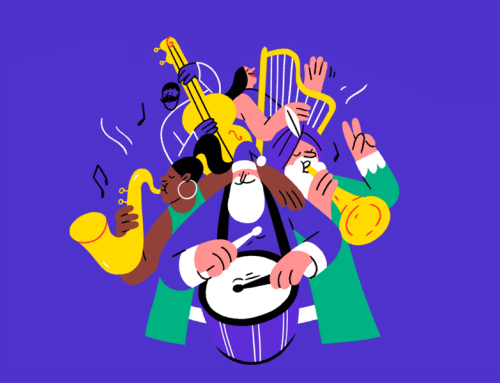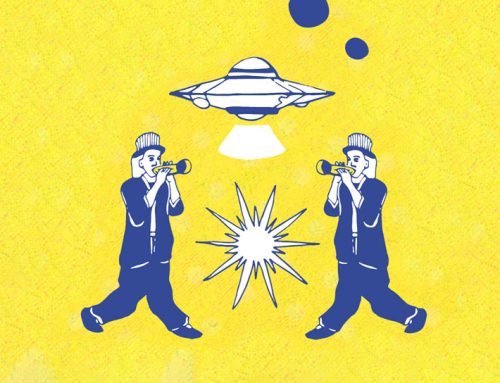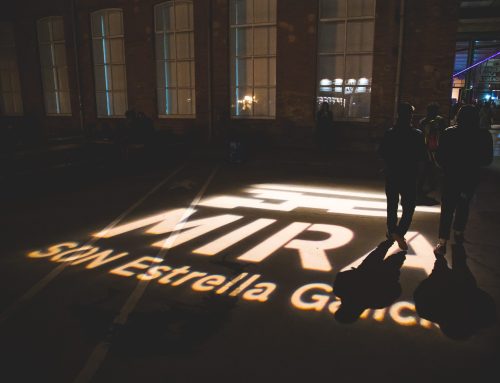Pure irony proves the point
They say every place has its own kind of humour, a defining trait. By their humour you shall know them—only that funniness is so specific to a location that it cannot always be properly translated, whether linguistically or culturally. I have three jokes I tell in English, none of them well. Two are typically Canadian: they have references to rugged nature, and both go on forever, as if living in a vast landscape gave us all the time in the world to get to the damn punch line. One is about an LBGTQ grizzly bear and an American hunter; the other combines skydiving with a camping stove incident. Both are too long to tell here.
My other joke is by Eugenio, the straight-faced, bearded Catalan who sat on a stool with his drink, smoking one of those cigarettes that would eventually kill him. It goes like this: “Two Neanderthals decide to get married and set out, on foot, on their honeymoon, dressed in furs and carrying their clubs. After a few weeks on the road, the Neanderthal lady starts to get a bit disheartened, thinking to herself: ‘Married life is not quite what I expected it to be’. So she stops and turns to her husband: ‘Honey, tell me something that no man has ever said to me before.’ And he looks at her and says: ‘Motorcycle’.”
No one ever finds this funny, though I am not sure if it is because of the way I tell it, or because Eugenio is hard to do, no matter the language. If you had to make a list of the best modern Catalan comedians, Eugenio would be one of them. Eugenio’s logic was absurd, and he was not interested in eliciting cheap guffaws. On top of that, he exaggerated his Catalan accent and threw Catalan words into his Spanish routines (‘nen’, ‘cony’, or the classic ‘¿Sabe aquel que diu?’).
I think Eugenio was a damn witty Catalan, but I am not sure, as a rule, if Catalonia or Barcelona are particularly humorous places. And here I’d better tread lightly. If I were to go right out and say Barcelona is not funny, people would get upset, and rightly so—no group of people wants to hear their humour is unappreciated.
A better tactic is to just come right out and say it is a very funny city, then watch the reactions: “Barcelona is hilarious, people are always laughing and telling jokes. No one ever takes anything seriously.” The fact that not a single Barcelonan would believe such a statement, that everyone would recognise it as pure irony, proves the point. Talking about how hilarious Barcelona is—well that’s good one!
In Spain a few cities have an identifiable associated humour, the best being Lepe and Bilbao. In Bilbao it is all ego and bombast; the Bilbaino is a super-human brimming with self-confidence, which is amusing because, after all, it’s just Bilbao:
“A Bilbaino goes into a bar and the waiter says ‘Hey Patxi, I see you bought a new car.’ ‘Yeah, Iñaki, but how do you know?’ ‘Look at your backpack’. And Patxi looks up and says, ‘Damn seatbelt’.”
If I were to go right out and say Barcelona is not funny, people would get upset, and rightly so—no group of people wants to hear their humour is unappreciated.
Lepe is the opposite situation, where others use the Andalusian town, which underwent an economic transformation when strawberry production boomed, to mock rural innocence coming of age. Leperos are made out to be chronically dumb, like the one who put three antennas on his TV set to watch Antenna 3. Like with the jokes others tell about Catalonia, they are a bit harsh and, logically, not fair. Jokes about tight-fisted Catalans also have a perverse side to them, since Catalonia is a region that pays way more into Spain than it gets out. It is also full of non-profit associations and cooperatives, which means people are spending hundreds of hours a year as volunteers, giving their time and money away.
Catalans never laugh at Catalan jokes, since they are not ingratiating, unlike folks in Bilbao at theirs.
Funny or not, it is hard for a foreigner to find a comical comfort zone in Barcelona. When you first get here you are frustrated to miss hilarity as it whirls around a dinner table, never knowing when to laugh; years go by, you learn the language, and it still doesn’t get much better. After, when you try to be your usual funny self, you get cold blank stares. Then something you say makes everyone crack up—and now you’re staring at them rolling around the floor, irritated by such overreaction, because this time you weren’t even trying.







